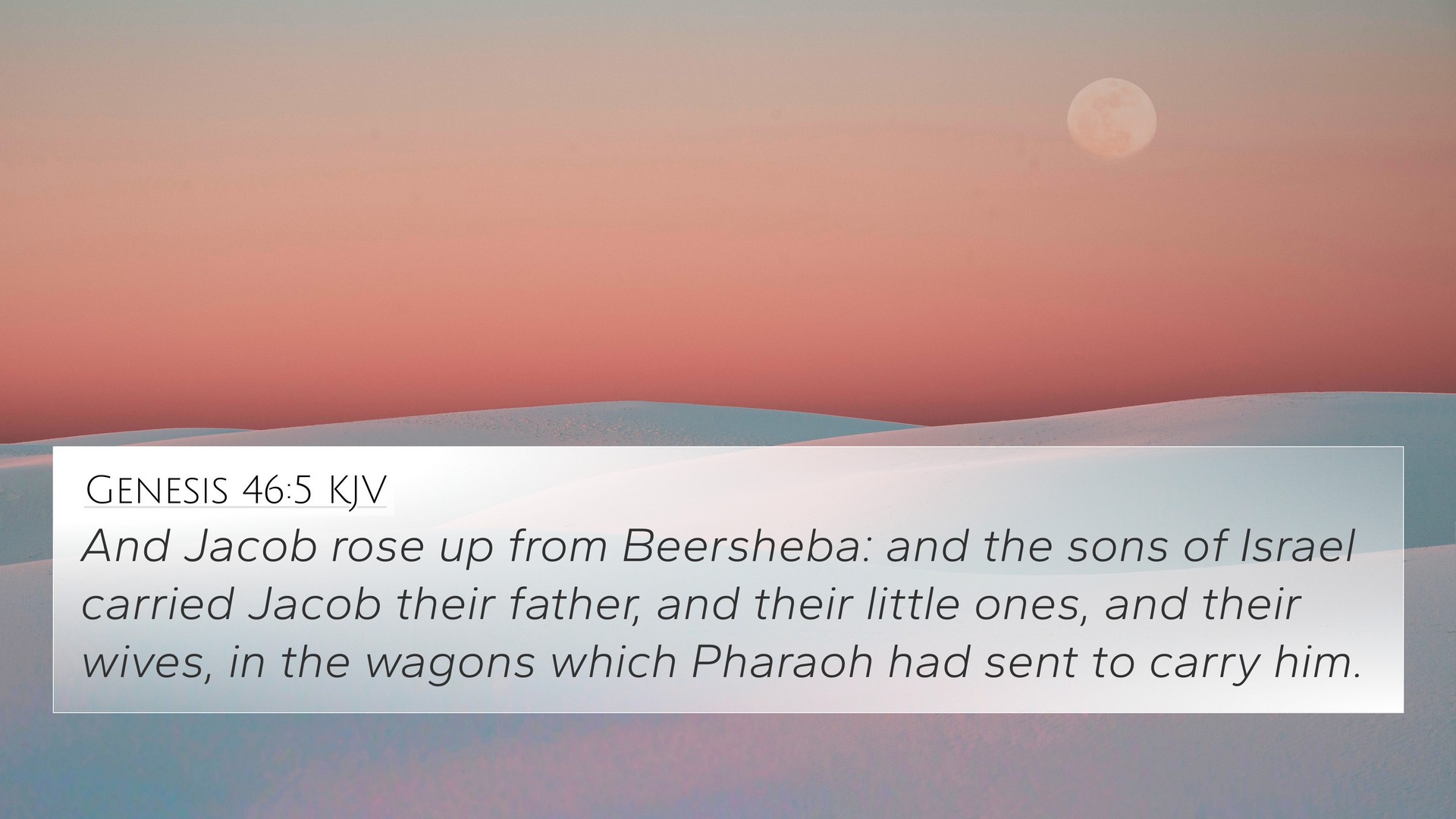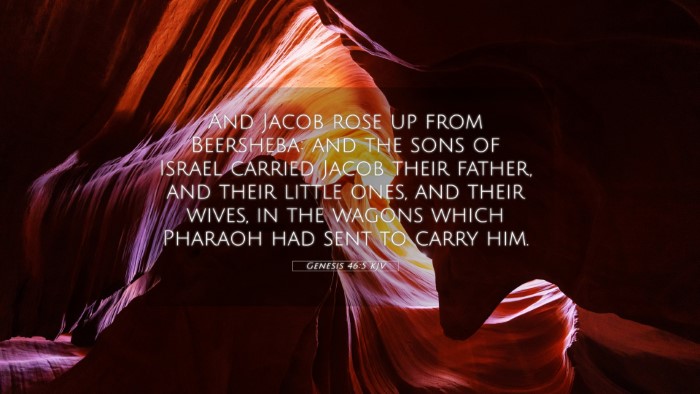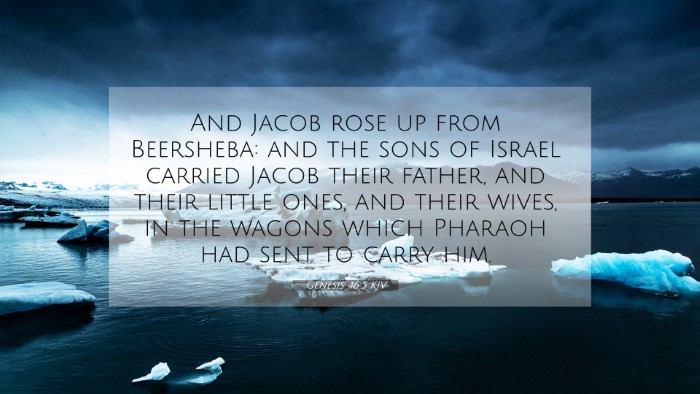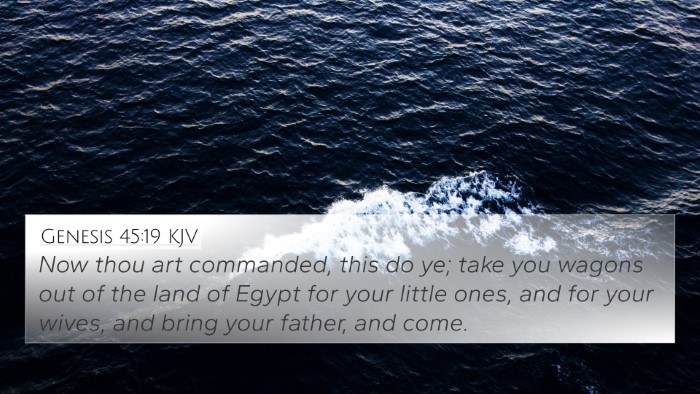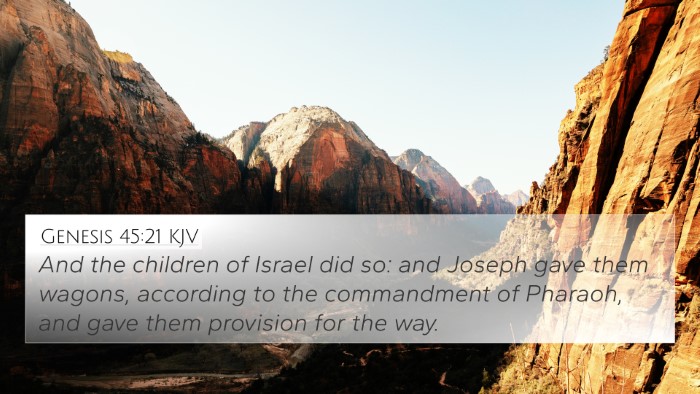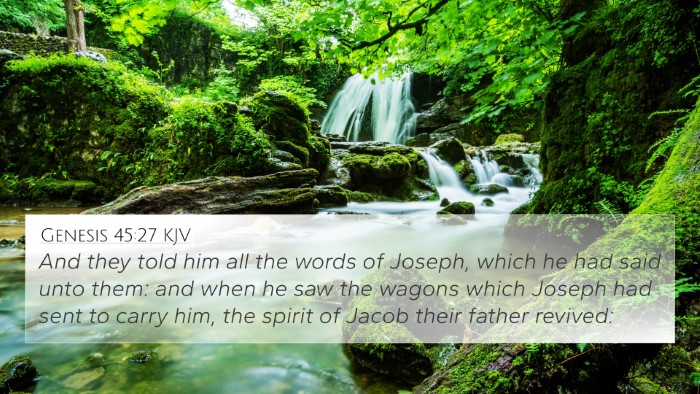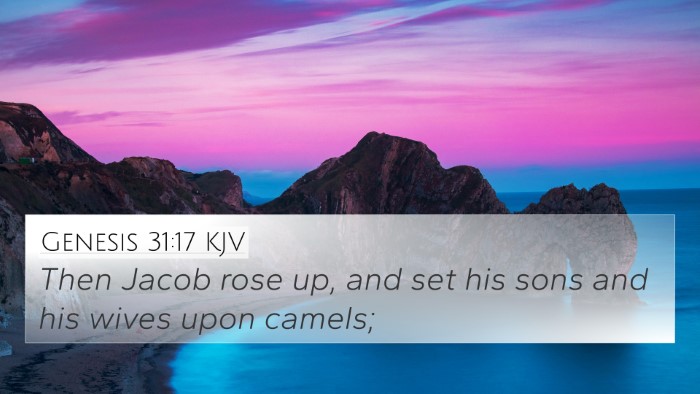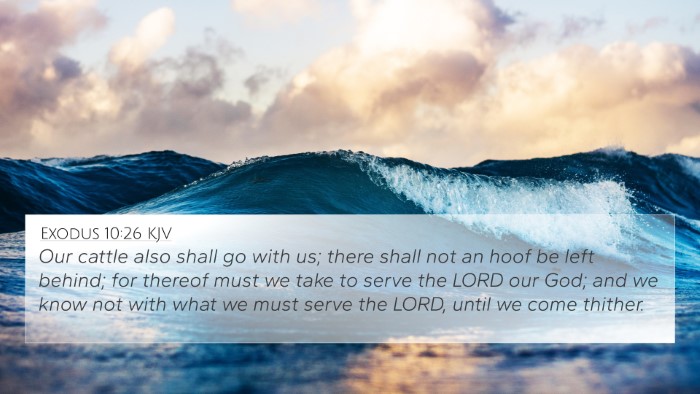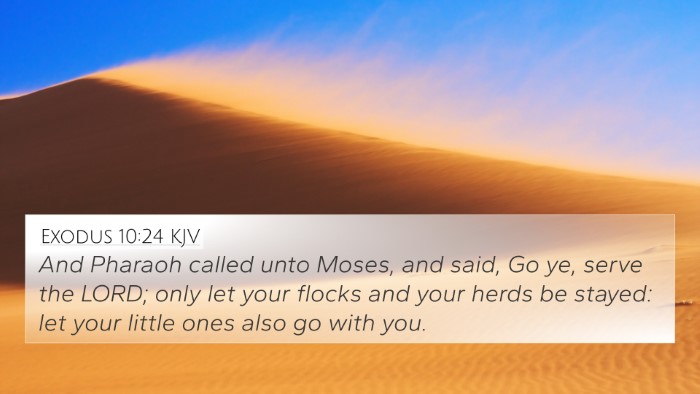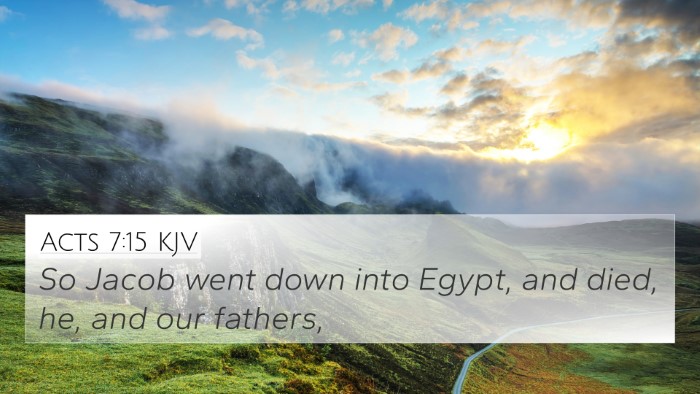Understanding Genesis 46:5
Genesis 46:5 states: "And Jacob rose up from Beersheba: and the sons of Israel carried Jacob their father, and their little ones, and their wives, in the wagons which Pharaoh had sent to carry him."
Verse Meaning Overview
This verse captures a significant moment in the journey of Jacob and his family to Egypt, signifying not just a physical relocation but also a pivotal transition in the story of Israel. The act of Jacob rising from Beersheba indicates his obedience to God's directive after receiving news about Joseph's survival. The assistance offered by Pharaoh showcases the providential care God had for Jacob's family during this momentous journey.
Thematic Insights
- Divine Guidance: Jacob's journey is prompted by God’s will, as previously revealed through visions and promises.
- Family Unity: The act of the sons carrying their father represents familial support and the importance of unity during times of transition.
- God’s Provision: The use of Pharaoh's wagons signifies God's provision through unexpected means, emphasizing His sovereignty over nations to fulfill His purposes.
Commentary Insights
Matthew Henry: He emphasizes that Jacob's journey is laden with divine instruction. Jacob's readiness to go, despite his initial fears, exemplifies faith in God's promises. The carrying of him in Pharaoh’s wagons signifies a great honor bestowed upon him and reflects on the nature of God’s provision for His people.
Albert Barnes: Barnes notes that this journey marks a significant point in Israel's history, indicating a mixture of sorrow and hope as they leave Canaan for Egypt. The wagons symbolize both practical assistance and the honor bestowed upon the family of Jacob by the Egyptian ruler, reinforcing the narrative of divine favor.
Adam Clarke: Clarke remarks that Jacob’s readiness to depart, along with the active participation of his family, illustrates a collective obedience to God's call. He also points out the implications of Israel’s later enslavement in Egypt, hinting at the complex future that lies ahead for the descendants of Jacob.
Cross-References and Further Connections
This verse connects deeply with several other scriptures that enrich the understanding of this pivotal moment:
- Genesis 28:15: God promises Jacob that He will be with him wherever he goes.
- Genesis 37:28: The earlier narrative of Joseph being sold into Egypt sets the stage for this family journey.
- Genesis 50:24: Jacob’s eventual destiny and the prophetic nature of his family’s future in Egypt.
- Exodus 1:1-3: The transition from this journey to the enslavement of Israel demonstrates the contrast of initial favor and subsequent oppression.
- Genesis 12:1-3: God's covenant with Abraham, affirming that Jacob's journey fulfills the promise made to the patriarchs.
- Romans 8:28: The overarching theme of God working all things for good resonates through Jacob’s experience.
- Hebrews 11:21: Jacob’s faith is highlighted, emphasizing the importance of trusting in God’s promises amidst uncertainty.
Conclusion
Genesis 46:5 serves as a transitional verse that not only marks Jacob's departure to Egypt but also underscores broader theological themes such as divine providence, family loyalty, and the unfolding of God's redemptive plan. The connections to other Bible verses enrich our understanding and provide a framework for studying the complexities of Israel’s history.
Keywords for Further Study:
- Bible verse cross-references
- Connections between Bible verses
- Linking Bible scriptures
- Comparative Bible verse analysis
- Bible verses that relate to each other
- Cross-referencing Biblical texts
- Thematic Bible verse connections
- Bible verse parallels
- Scriptural cross-referencing
- Inter-Biblical dialogue
